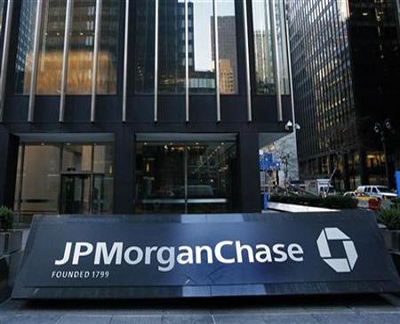 摩根大通JPMorgan一直被誉为管理完善、操作谨慎的世界级巨型银行。
摩根大通JPMorgan一直被誉为管理完善、操作谨慎的世界级巨型银行。
然而,JPMorgan的如此美誉却在昨晚遭受了严重的打击。昨晚,伦敦曝出JPMorgan的一宗交易出现20亿美金(真实数字可能更多)的亏损。而且,这宗导致巨额亏损的交易正是公司信贷的衍生品,即JPMorgan为避免公司信贷出现坏账进行的保险交易。
JPMorgan总裁Jamie Dimon直言不讳地称该起事件的主要问题出在“失误、大意和错误决判”上,我不确定他的坦率究竟是否是件好事。
令人惊讶的是,Dimon并没有说明这些出自JPMorgan首席投资部门、本想给它带来盈利(最后证明是亏损)的交易根本未经授权,而是交给了一个假定的“劣质交易商”。
据说,这些导致亏损的交易是所谓的对冲交易,目的是减少银行带来的风险。这也是为什么该起事故对JPMorgan而言不仅意味着亏损,更是一个巨大耻辱的原因。尽管如此——为了避免外界生疑——JPMorgan将对其2012年的银行利润削减一部分,但绝不会全部消除。
这就是由Dimon先生引发的奇怪之处——有关监管者是否应采取更多果断措施控制投资银行的复杂操作,以避免此类事再次发生的讨论将再次被掀起。
暂不说别的,几周前,彭博社和华尔街日报就对伦敦JPMorgan信贷衍生品进行了深度报导,但JPMorgan当时拒绝承认有风险存在。
因此,JPMorgan的交易损失将引起业界的共振反应。
在美国,该事件将激怒那些试图与银行的无力挣扎对抗的人,他们十分反对银行无视沃尔克规则(Volcker rule)的行为,意在阻止银行用自己的帐户操作大型投资。
在英国,这起事件可能会让人们重新审视小额银行业务与投资银行业务之间的隔离措施对一些重要的银行服务是否起到了足够的保护作用。
那些全球大银行现在正与穆迪公司紧张地辩论着,阻止信用评级机构调低它们中大多数的信用级别,因为那样会使它们的借款成本升高,它们的利润额会因此缩水。
通过JPMorgan这起事故,大银行们无法再让穆迪相信它们没有想象中那么高风险。
JPMorgan has a reputation for being one of the better managed and more cautious of the world's huge banks.
But that reputation has taken a serious knock with the disclosure last night that a trading desk in London has lost $2bn - and perhaps more - on deals in what are known as corporate credit derivatives, or insurance against the danger of loans to companies going bad.
I am not sure it helps that the bank's chief executive, Jamie Dimon, has been refreshingly frank, blaming "errors, sloppiness and bad judgement".
Strikingly, he has not said that these transactions, carried out for JPMorgan's own benefit (or disbenefit, as it turns out) through its chief investment office, were unauthorised or down to a putative "rogue trader".
These deals were supposed to be a so-called hedge, an attempt to reduce the risks taken by the bank. That is why the incident is more than a big embarrassment for JPMorgan, although - for the avoidance of doubt - it will put a dent in the bank's profits for 2012 but won't anywhere near eliminate them.
It is the surprise factor - the shock evinced by Mr Dimon - that will reignite the debate about whether regulators need to take more decisive action to curb the complexity of investment banks, to better prevent this kind of accident.
Apart from anything else, Bloomberg and the Wall Street Journal both highlighted the big credit-derivative positions being taken by JPMorgan in London a few weeks ago, and the bank rejected the suggestion that there were serious dangers here.
So the JPMorgan trading loss will resonate and reverberate.
In the US, it will strengthen the argument of those fighting a rearguard action from the banks to water down the Volcker rule, which is supposed to prevent banks taking big investments for their own account.
In the UK, it may mean revisiting whether the proposed ring fence between retail banking and investment banking is protection enough for essential banking services.
As for big global banks, they are engaged in a fraught debate with Moody's to dissuade the ratings agency from downgrading many of them, in a way that would make it much more expensive for them to borrow and would squeeze their profits.
JPMorgan's accident won't strengthen their case that they are less risky institutions than Moody's fears.
 摩根大通JPMorgan一直被誉为管理完善、操作谨慎的世界级巨型银行。
摩根大通JPMorgan一直被誉为管理完善、操作谨慎的世界级巨型银行。
